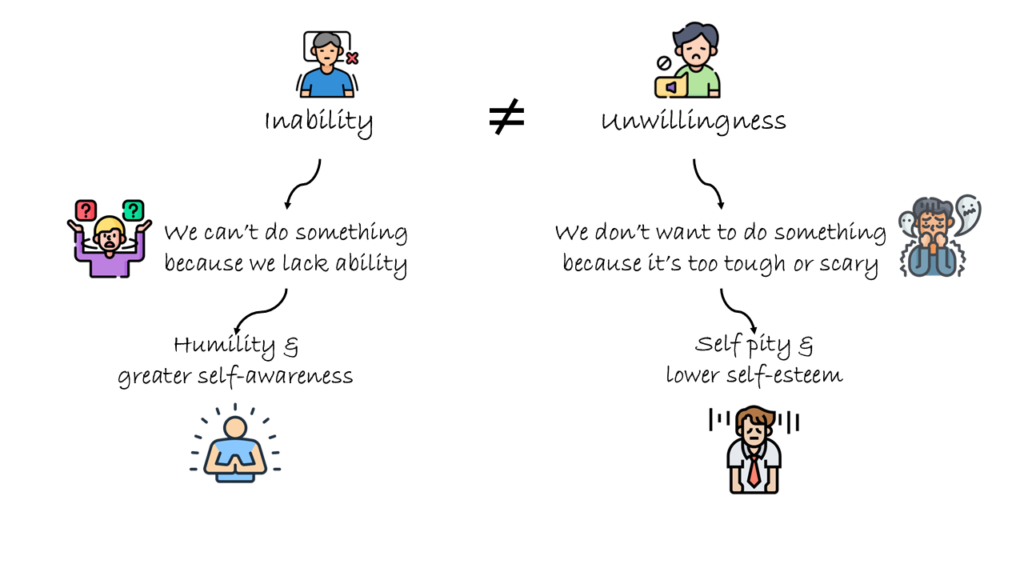
Inability vs. unwillingness: Facing challenges and understanding ourselves
Whenever we face difficult situations—whether a work deadline or a family emergency requiring us to stretch beyond our comfort zone—we encounter moments of reckoning. Will we rise to the occasion, or will we crumble under its weight? To navigate such situations effectively, it’s crucial to differentiate between inability and unwillingness.
The distinction between inability and unwillingness
1. Inability: This refers to a lack of talent, skill, or capacity required to perform a task.
Example: If we are asked to sing at a public event but lack singing ability, declining would be a realistic response. While this might be temporarily embarrassing, it aligns our self-image with reality, helping us make better choices in the future.
2. Unwillingness: This stems from fear, insecurity, or self-doubt, even when we have the ability to perform the task.
Example: If we are asked to speak at a charity event about a cause we deeply care about, but let fear of public speaking hold us back, it’s not inability but unwillingness. This failure can leave us feeling disappointed in ourselves for not rising to the occasion.
The consequences of each
Failure due to inability: Such failures, though temporarily painful, are constructive in the long run. They provide a clearer understanding of what we can and cannot do, enabling us to make realistic choices.
Failure due to unwillingness: These failures are more damaging, as they erode our self-esteem. We may struggle to forgive ourselves for missing opportunities that could have helped us grow.
Avoiding self-deception
Mistaking unwillingness for inability can be particularly harmful. If we justify our unwillingness as an inability, we avoid confronting our fears and miss opportunities for self-improvement. The Bhagavad-Gita (18.35) warns against such pathological thinking, which perpetuates ignorance and stunts personal growth.
Summary:
- Failure due to inability can lead to embarrassment in the short term but helps us develop a realistic understanding of ourselves in the long term.
- Failure due to unwillingness can have lasting negative consequences, causing us to lose self-respect and miss growth opportunities.
- Careful self-observation helps us differentiate between inability and unwillingness, enabling better self-assessment and growth.
Think it over:
- Reflect on a situation where you failed to do something due to inability. How did it change your self-perception?
- Recall a time when you failed due to unwillingness. How did it affect your vision of yourself?
- How can you better distinguish between inability and unwillingness in the future, ensuring honest self-assessment and personal growth?
***
18.35 And that determination which cannot go beyond dreaming, fearfulness, lamentation, moroseness and illusion – such unintelligent determination, O son of Pṛthā, is in the mode of darkness.



Leave A Comment